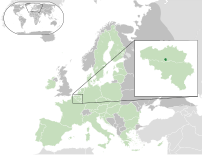 Some of the best translators I know don’t have a degree in translation, so they are certainly not a requirement to becoming a translator.
Some of the best translators I know don’t have a degree in translation, so they are certainly not a requirement to becoming a translator.
However, an increasing number of newcomers to the profession are opting to pursue a formal (usually postgraduate) qualification in the field.
So when translator Lloyd Bingham put out the following call a few months back on Twitter, it set me thinking:
Looking for a few translators WITH and WITHOUT an MA to talk about the relevance of a translation Master’s for the job. Please help and RT!!
— Lloyd Bingham (@thelanguageman) June 5, 2012
What should you keep in mind when weighing up whether a translation degree is for you? [Read more…]






